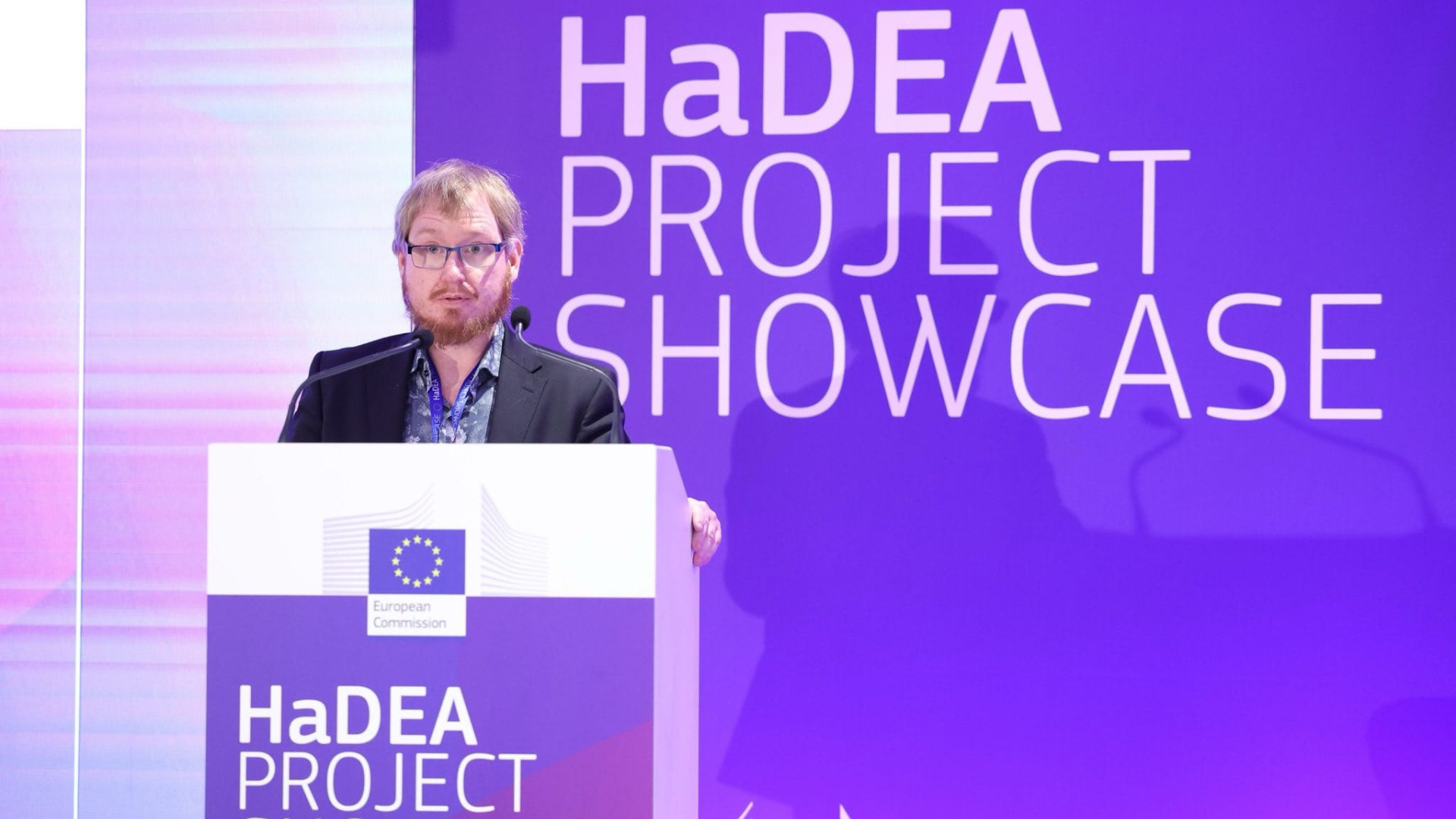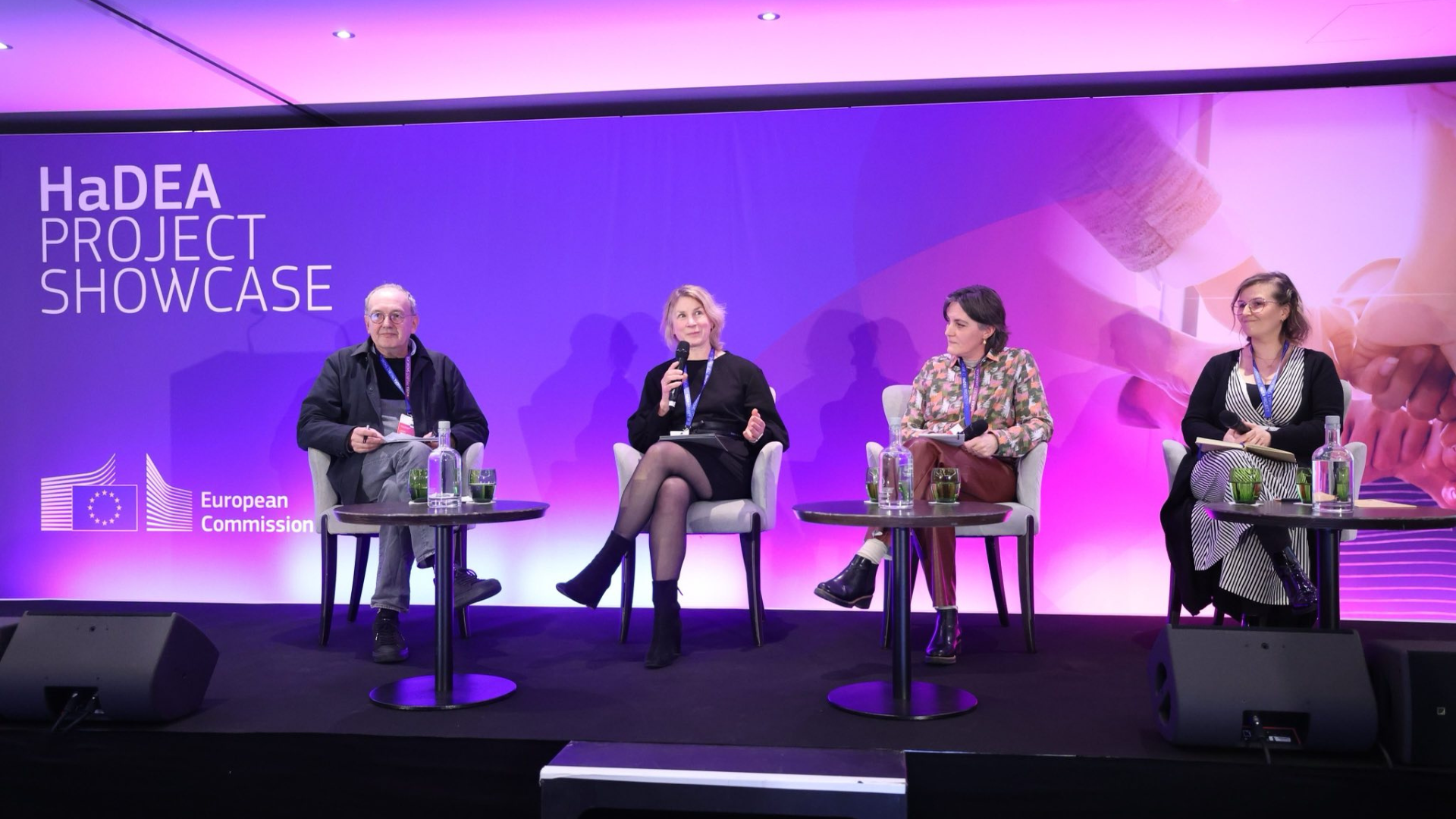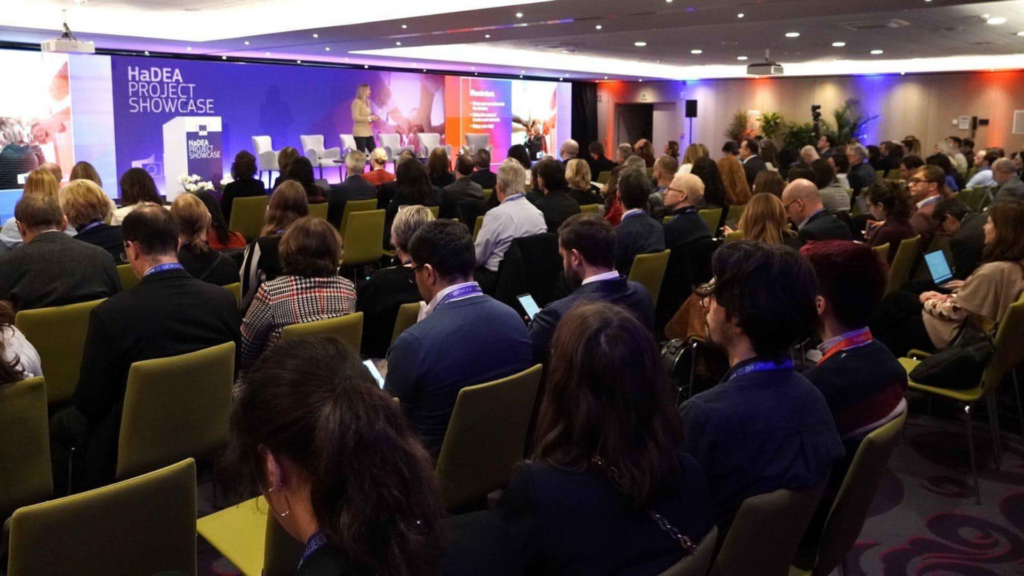While EU initiatives contribute to improved cancer care, the shortcomings in European healthcare systems remain a hurdle in the battle against cancer, several survivors and medical professionals highlighted at the World Cancer Day (4 February) event by the European Health and Digital Agency (HaDEA).
"I was very athletic and outgoing, and I studied full time [...] but with the treatment, this changed overnight," said Erik Sturesson (37), a Swedish cancer survivor and member of Youth Cancer Europe and EU-CAYAS-Net project.
At the age of 15, Sturesson was diagnosed with non-Hodgkin's lymphoma, a type of blood cancer. Years later, while dealing with both physical and psychological side effects, he found himself "chasing his old life", but was met with burnout. "Throughout all of this, there was a distinct lack of support from the healthcare system," said Sturesson.

Erik Sturesson. Credit: HaDEA/Xavier Lejeune
A particular issue was the limited approach to solutions: "Always medication, never therapy." Even when pursuing psychological help himself, Sturesson was left on a waiting list for almost three years.
As a neurodivergent person, Sturesson discovered the downsides of the "equal care" for all approach. "It's still not adapted to people like me," he said. "Situations are very stressful, doctors don't have enough time, and they haven't been trained on how to deal [with neurodivergent people]," he added.
"With all these experiences you start to build distrust in the system," explained Sturesson. "You're asking for help and you don't get it [...] eventually you stop asking."
Beyond medication
Sturesson's story is not an isolated case. "I recognise [many similar stories] in Belgium too, from some of the contacts we have with young cancer patients," said Dr. Marc Van Den Bulcke of Belgium's research institute Sciensano.
Sturesson's call for support beyond medication was echoed during a panel led by Van Den Bulcke, with representatives and contributors of several EU cancer care projects.
An example was the impact of exercise programmes for patients, studied through the EU's 'Preferable' project. "Patients with metastatic breast cancer reported less fatigue, less pain, less dyspnea [shortness of breath], and a better quality of life when they exercised," said UMC Utrecht professor and researcher, Dr. Anne May.

L-R: Marc Van Den Bulcke, Anne May, Lieve Van den Block, Carina Schneider. Credit: HaDEA/Xavier Lejeune
"More importantly, we also carried out a cost-effectiveness analysis [...] patients who exercised had fewer costs in healthcare, missed fewer days of work [...] and in their social life they were also fewer costs," May added.
However, proving the cost-effectiveness of projects is not always easy: "We try to explain [to health authorities] if you do this, you will save money in the long run [...] but then they say: 'Where are the numbers?'" said Carina Schneider, Managing Director at Childhood Cancer International involved in the EU-CAYAS-NET project for young cancer survivors.
More support is needed to conduct such analyses, especially considering how the lack of funding is the most common barrier to implementation of valuable care projects, Schneider explained.
'This has to change'
Despite Sturesson's initial challenges, he eventually found the support he needed through his own initiative. "I got involved in patient advocacy first, through Youth Cancer Europe [...] this was my way out of this destructive world," he said.
However, he underscored the importance of changing the current system. "I did manage to find my way [...] but this path is not marked," he said "This has to change."
HaDEA is an executive agency of the European Commission. It is tasked with implementing the EU funding programmes for health, food safety, digitalisation, industry and space.
The World Cancer Day event highlighted the impact of various EU grants and projects in cancer care within the EU.

